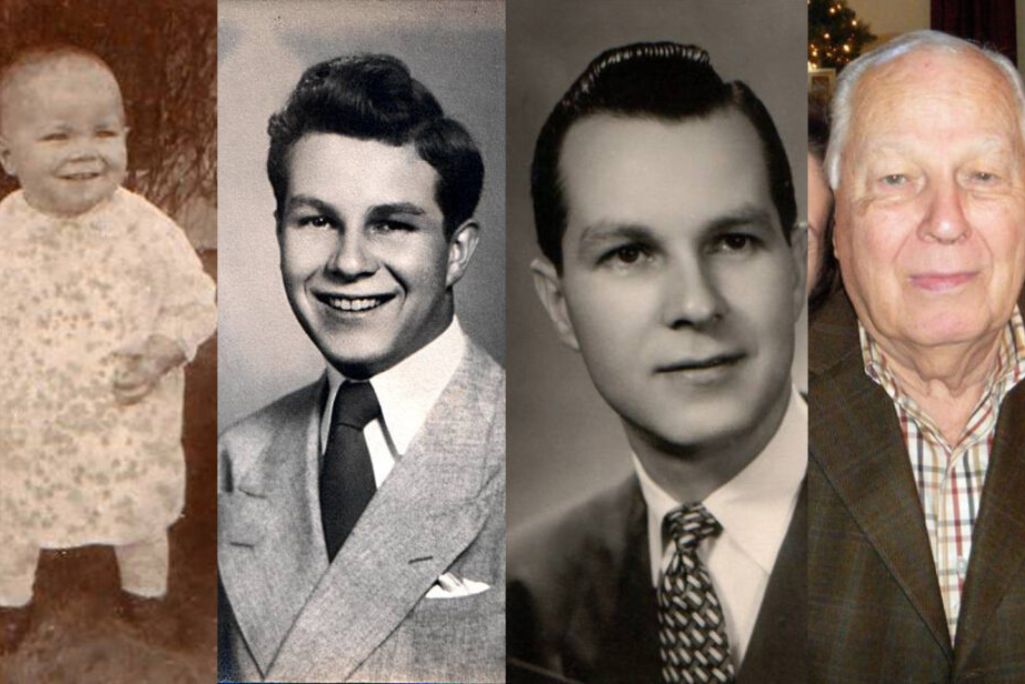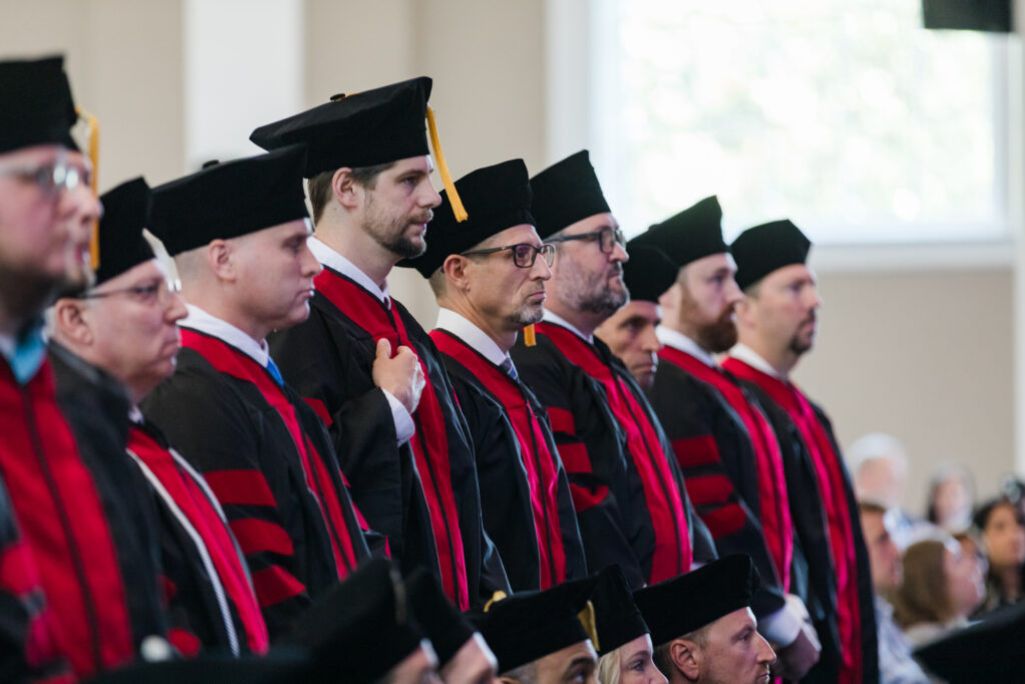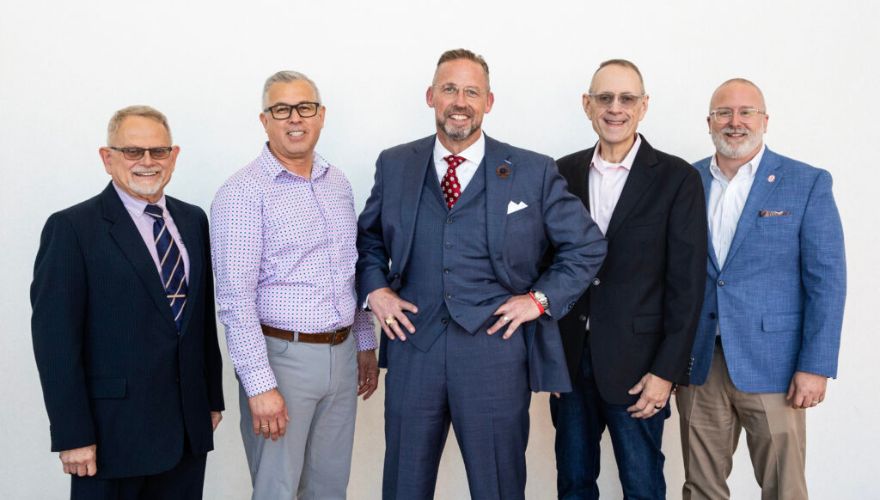
As a baby, Bob Polk represented the birth of the Cooperative Program in a pageant at the 1925 SBC annual meeting in Memphis. He went on to promote the Cooperative Program as a pastor and in denominational work.
NASHVILLE (BP) — In 1925, Southern Baptists looked to the future with the launch of a new funding mechanism. Hope was high, but so was anxiety after the recently-completed 75 Million Campaign fell a little over $16 million short of its goal.
Success wouldn’t come without effort, said the report on the Cooperative Program’s (CP) launch. Goals didn’t just include continued ministry but paying off debt. A lot was riding on this new path forward. It would take dedication, planning and faith.
“Your Committee believes that the elements of leadership, spiritual and intellectual, as represented in this very meeting of the Convention, are capable of accomplishing this task in a reasonable time,” read the report.
“… We believe that our failure to accept this responsibility and commit ourselves to this task will be to forfeit our greatest opportunity.”
The annual meeting included a “pageant,” according to records from First Baptist Church in Big Spring, Texas, that included a baby representing the beginning of the Cooperative Program.
The baby’s relationship to the Cooperative Program did not end with the 1925 pageant. A pastor in attendance, P.W. Malone, would recall the event some 36 years later.
Making an impression
Technically, Robert Polk had a jump on the CP’s launch. Though he was only a few months old that day in May 1925 when it was adopted, CP became a major influence in his life. He more than returned the favor as someone who spoke about it as a pastor and in denominational work.
The only child of his grocer father, also named Robert, and seamstress mother, Olive, Polk grew up in Memphis, Tenn., the location of the 1925 Southern Baptist Convention (SBC) meeting. Olive prayed every morning over R.F., as he was called, before he left for school. He grew up in the church and was popular with classmates, voted “Best Boy Personality.”
His best friend was the pastor’s son and had gone to Baylor University. He convinced Polk to join him. He also declared they were going to call him “Bob” from now on.
Even before he left, a call to the ministry was already egging Polk.
“During my junior high school era (about 12-13 years old), I felt somewhat of an impression to think about my future, my vocation, my life,” he said in 2004. “And I felt down deep that the Lord wanted me to be a preacher.
“‘Lord, I don’t want to be a preacher,’” he remembered. “‘If I’m a preacher, I’ll have to be good, too pious. And I want to be able to wear some sporty clothes once in awhile and have a good time.’”
He developed a plan to answer the calling without really answering it. An excellent organ player who, even in his later years, could play piano by ear, Polk decided he would be a music or education director for a church. After a conversation with an older pastor, though, he felt more clearly about the situation and convicted about his call to preach.
Polk entered Baylor in the fall of 1942, when many of his classmates had already enlisted to fight in World War II. Polk tried to as well but was rejected due to his eyesight and because he was already training to be a minister.
He met a pretty coed, Polly. They married in the Texas border town of Harlingen in 1945 and would go on to have three children.
Chickens in the trunk
While attending Baylor, Polk served as an associate pastor in Waco before entering Southwestern Baptist Theological Seminary.
His first pastorate came at a little frame church in Wellborn, near College Station. On some cold mornings, Polk would fire up the church’s potbellied stove. Once, he left to return home and pick up Polly. On returning he saw smoke coming out from under the shingles. He and others were able to remove items before the fire was put out.
That was also the church where Polk thought some boys were joking about a water moccasin in the tree above him as he baptized people in a creek. He realized later they weren’t.
Despite the name, his next pastorate was also in Texas — New York, just outside of Athens. He was paid $30 a week. It wasn’t uncommon for congregants to provide tomatoes, cucumbers, okra and string beans as fringe benefits. If his car trunk was unlocked, they would add two or three frying-sized live chickens with their feet tied together.
Polk would go on to serve as pastor in the towns of Rockwall, Hawkins, Robstown and Bryan.
In 1962, the search team at First Baptist Church in Big Spring, in West Texas, had talked to approximately 20 candidates to succeed their current pastor, P.D. O’Brien. The minutes from the church’s called conference on Sept. 10, 1961, say the team “definitely felt the leading of the Holy Spirit as they talked with Brother Polk during their visit to his church.” One member of that search committee stands out — Dr. P.W. Malone.
There was also a note about Polk’s role at the “pageant” for the launch of the Cooperative Program.
“What brings this incident closer to home is that our own Dr. Malone was present for this program and remembers this portion of it,” said the report.
Jonathan Raffini, minister of discipleship and education at Big Spring, stumbled upon the church’s connection to the beginning of the CP while creating a historical profile of First Baptist.
“The project is to show God’s faithfulness to this congregation over the years as we are embarking on a major renovation,” he said on discovering the story about Polk and Malone. “I found that such a neat connection. Our church has such a long history of supporting the CP and missions in general, and this was a good reminder of our church’s ability to give to something greater than ourselves and help support missions all around the world.”
‘Inextricably connected’
Polk went on to serve at Big Spring until accepting the call as pastor in Ponca City, Okla., in 1970. In 1975 at a CP birthday breakfast, he recalled the Cooperative Program’s launch as a five-month-old “in my mother’s arms.”
“During the last 50 years, I’ve seen the Cooperative Program grow to become the largest and most stable system of giving in the world,” he said in 1975. “I try to lead every church I pastor to increase its gifts to the Cooperative Program. During my last six years, my church has increased its gifts through the Cooperative Program by 88% and to missions as a whole by 106%.
“Maybe our Lord will lead us to a new plan, but right now the Cooperative Program is the best practical plan of sharing the gospel with people everywhere.”
The next year, he joined the Baptist General Convention of Texas as a division associate for stewardship. Eight years later, he became the first full-time director of Cooperative Program Promotion for the state convention, remaining in that role until his retirement in 1990.
“My life has been inextricably connected with the Cooperative Program,” he was quoted in the Texas Baptist Standard’s Sept. 21, 1983, edition.
“My dad is my hero, a prince of a man; we were very close,” his daughter, Nancy Perry, told Baptist Press (BP) recently.
“Beloved by his congregations and well-respected in the communities he served, his demeanor was gentle, confident and personable,” Perry said. “He was quite a scholar, a great teacher and a compelling speaker whose sermons were engaging and impacting, full of truth. His sermon delivery reflected his persona — not heavy-hitting, abrasive or loud — as the true Southern gentleman that he was.”
Her father also employed a keen business sense, helping First Baptist Robstown and First Baptist Big Spring each complete building programs. Family vacations often coincided with the SBC annual meeting, Perry said, including memorable trips to San Francisco and Miami.
She remembers her father also being a champion for missions and CP.
“Our churches were huge supporters of the special offerings, Lottie Moon and Annie Armstrong,” she said, adding that the Woman’s Missionary Union (WMU), Girls in Action (GA) and Royal Ambassadors (RA) programs “were vibrant. Dad kept his congregations aware and informed about the ministries that the CP supported.
“Informing and educating the congregation is vital to see the impact for Christ and appreciate how efficiently the Cooperative Program distributes funds that are received.”
Elevating others
Perry attended Baylor and graduated in 1976. Her daughter, Alicia Perry Beaver, became a third-generation Bear. In 2004 she interviewed her grandfather (“Paw Paw” in the transcript) for Baylor’s Oral History Department.
“I felt a connection to his time there, being on campus, but didn’t really know of his experiences,” she told BP. “I had only heard tidbits, like how he had personally known former Texas Gov. Pat Neff, played the chimes for the students while they went to class, played the organ for the beauty pageant, attended during WWII, met my grandmother and was called to the ministry.
“I also wanted to benefit others around the world, knowing that he left a strong Baptist legacy and an interesting Christian life.”
Humble and gentle, those two words resound with Beaver when it comes to her grandfather.
“It’s rare to find a man with so much depth of character,” she said. It reminds me of 1 Thessalonians 4:11-12: ‘Make it your ambition to live a quiet life, minding your own business and working with your hands, just as we told you so that your daily life may win the respect of outsiders and so that you will not be dependent on anybody.’”
With seven grandchildren and five great-grandchildren, Polk and his wife were married for 68 years when Polly died in August 2014. He passed five months later at 90.
Perry remembers “countless souls” accepting Jesus under her father’s ministry. “He exhibited excellence, sensibility and kindness in every facet of his ministry as leader and shepherd,” she said.
Though his pastorates — save one — were in one state, Polk loved to travel. He went to Europe several times and was a guest preacher in Ireland in 1959. A two-week preaching tour in Japan came in 1963. His favorite city was London. He was fond of the art of Claude Monet and traveled to Monet’s garden and home in Giverny, France.
Overall, Polk exhibited “a personal heartfelt expression of gratitude,” Perry said. “Dad taught me to take initiative in expressing generous gratitude. He made each person he encountered feel ‘seen’ and valued.
“My dad elevated one’s spirit with conversation, a sincere interest in their story and humor. He had a sparkle in his eye, music in his soul and the joy of Christ in his heart.”
(EDITOR’S NOTE — Scott Barkley is chief national correspondent for Baptist Press.)


